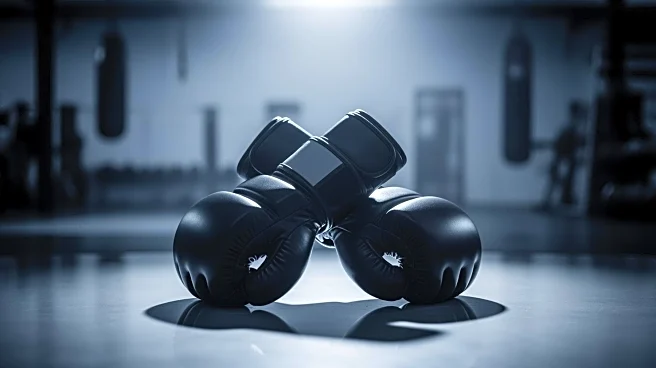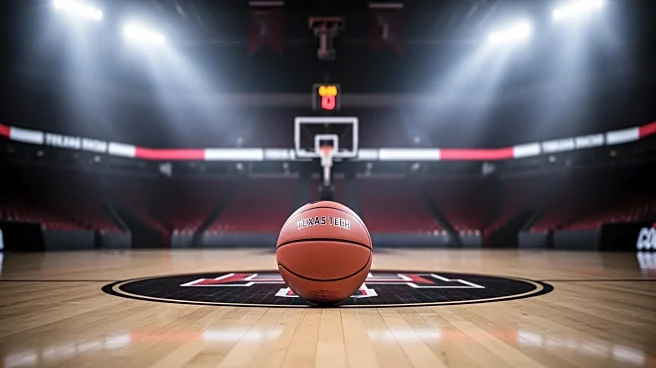What's Happening?
Duke Roufus, a prominent figure in the world of mixed martial arts, has passed away at the age of 55. Roufus, who was a celebrated kickboxer and MMA coach, died in his sleep, as announced by his friend
and business partner Scott Joffe. Roufus was known for his significant contributions to the sport, not only as a trainer and champion kickboxer but also as a mentor and innovator. His influence was felt across the MMA community, having coached several world champions including Tyron Woodley, Ben Askren, Anthony Pettis, and Sergio Pettis. Roufus transitioned from his kickboxing career to coaching full-time in 2008, leaving a lasting legacy through his Roufusport MMA Academy.
Why It's Important?
The passing of Duke Roufus marks a significant loss for the mixed martial arts community. Roufus was instrumental in shaping the careers of many fighters, helping them achieve success at the highest levels of the sport. His academy, Roufusport MMA, is renowned for its training excellence and has produced numerous champions. Roufus's approach to coaching and his dedication to his fighters have left an indelible mark on the sport, influencing training methodologies and fighter development. His death is a poignant reminder of his contributions to MMA, and his legacy will continue to inspire future generations of fighters.
What's Next?
Following Roufus's passing, the Roufusport MMA Academy is expected to continue operating under the guidance of his enduring philosophy and commitment to excellence. The academy will likely maintain its status as a leading training facility, continuing to produce top-tier fighters. The MMA community may see tributes and commemorations in honor of Roufus's contributions, celebrating his life and impact on the sport. Fighters and colleagues may also share memories and stories, highlighting his influence and the personal connections he fostered throughout his career.
Beyond the Headlines
Roufus's death may prompt discussions about the role of mentorship and innovation in sports coaching. His approach to training, which emphasized personal growth and excellence, could serve as a model for other coaches in various sports. Additionally, his legacy might inspire initiatives aimed at supporting young athletes and fostering talent in the MMA community. The cultural impact of his work, particularly in promoting MMA as a respected sport, may continue to resonate, encouraging further development and recognition of mixed martial arts globally.










